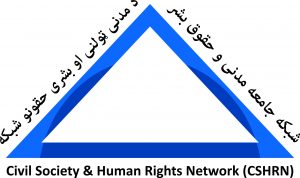Like other social and governmental bodies, the civil society of Afghanistan also needs strategic capacity building. Most of the civil institutions are operating through their daily plans. This caused the programs to remain without any target and strategic background. On the other hand, this shortage has challenged the convergence among the civil society institutions. That’s why training and capacity building has been emphasized and expressed as its important working outcome in relation to its strategic find outs by the civil society and human rights network of Afghanistan. Based on this program, the civil society and human rights network of Afghanistan offered educational manual of strategic planning. A working group composed of strategic experts who worked about one year on this educational manual and finally completed it with the support of the international experts especially the Danish Institute for Human Rights (DIHR).
Civil society institutions can organize and implement their strategic programs according to this educational manual. The manual is mainly focused on strategic background, vision and the key components of the strategic management. This education manual will play an important role in developing and improving the executive programs of civil society institutions. Based on this educational manual, CSHRN has conducted educational programs of «training the trainers» in all over the country. During this educational program, trainers of CSHRN’s member organizations in 24 provinces have been instructed and acquired these guidelines in a systematic way. Under this program, the human rights Summer School in relation to strategic planning for civil society institutions was held in Kabul. Human rights trainers from other provinces were invited in this educational school in order to share their find outs and experiences with each others, and discuss the ways and approaches of improving and using the educational manual. The participants of the school have been benefited from the experiences and knowledge of governmental agencies, academic institutions, the Afghan Independent Human Rights Commission (AIHRC) and the office of the United Nations in Afghanistan. In connection with strengthen the strategic programs of the civil society institutions, secretariat of CSHRN intends to conducts continues managerial and administrative capacity building programs for its member organizations. These programs will be organized by well trained trainers in Kabul and other provinces. One of the major outcomes of the program is forming a new strategy for CSHRN’s member organization. The Civil Society & Human Rights Network of Afghanistan (CSHRN) hopes to generalize the culture of strengthening better management, accountability, and transparency in the structures of civil society institutions.
